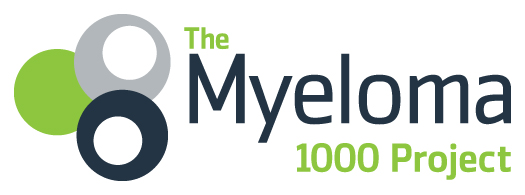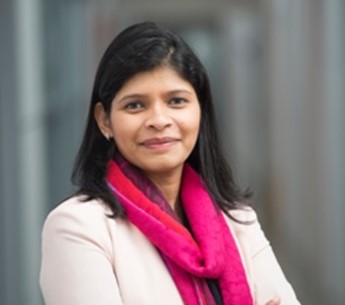The Myeloma 1000 Project: a blood biobank of the MRDR

In patients with cancer, cell-free DNA, with the same genetic and epigenetic changes as the tumour, can be detected in plasma/serum making it useful in developing cancer biomarkers. Cell-free RNA and miRNA can also be detected in plasma/serum and could be used as biomarkers to understand disease pathogenesis and progression.
The Myeloma 1000 Project aims to establish a repository of blood specimens available for future assessment of circulating biomarkers that better predict treatment response, and individuals at risk of developing myeloma and accelerated disease progression. The project will use the MRDR to link biological information with prospectively collected clinical data including information on patient demographics, diagnosis, treatment and clinical outcomes. The biobank aims to be a community resource to support research that improves the prevention, diagnosis and treatment of people with myeloma and related diseases.

A one-off blood sample (80-100mls) is collected into special tubes for 1000 patients with MGUS and 1000 with multiple myeloma who are newly diagnosed, ≥ 18 years, participants in the MRDR (may be recruited to both projects simultaneously) and have not received any treatment. Blood is sent in to the Coordinating Centre via Express Post for processing and isolation of plasma, serum, peripheral blood mononuclear cells (PBMC) and circulating cell-free nucleic acids. Informed consent is required, there is no processing of blood at sites, collection and postage materials are provided, and specimens must arrive within 72 hours of collection. Blood is collected by an appointed Research Nurse or a fully qualified phlebotomist.
Recruitment is increasing and requests for biobank samples have commenced. First samples were sent to Kate Vandyke and Andrew Zannettino at University of Adelaide for a project investigating whether serum CTX-1 levels predict progression from pre-malignancy to active disease in multiple myeloma. Samples and data sent for the second project will be used to compare methylation plasma cell-free DNA biomarkers to pre-existing mutation-based biomarkers in MM.
 Dr Mithraprabhu is a Senior Research Fellow in the Myeloma Research Group (MRG) at the Australian Centre for Blood Diseases (ACBD). She has worked in multiple myeloma (MM) research for 10+ years and has extensively investigated histone deacetylase inhibitor, panobinostat, that provided the insight for initiation of a clinical trial for MM maintenance therapy at the Alfred Hospital. From 2014, she has developed and led the liquid biopsy research program for multiple myeloma that focuses on the detection and analysis of biomarkers in the blood stream of MM patients. This work provided the framework for the establishment of a national biobank, the M1000, and she is the Principal scientist on the M1000 biobanking committee. She is also a co-investigator on MM clinical trials at the Alfred Hospital. Her liquid biopsy program has resulted in several peer-reviewed publications, attracted significant research funding and industry collaborations. Her current focus is to develop a screening blood test as an alternative methodology to bone marrow biopsy that can potentially transform MM clinical management.
Dr Mithraprabhu is a Senior Research Fellow in the Myeloma Research Group (MRG) at the Australian Centre for Blood Diseases (ACBD). She has worked in multiple myeloma (MM) research for 10+ years and has extensively investigated histone deacetylase inhibitor, panobinostat, that provided the insight for initiation of a clinical trial for MM maintenance therapy at the Alfred Hospital. From 2014, she has developed and led the liquid biopsy research program for multiple myeloma that focuses on the detection and analysis of biomarkers in the blood stream of MM patients. This work provided the framework for the establishment of a national biobank, the M1000, and she is the Principal scientist on the M1000 biobanking committee. She is also a co-investigator on MM clinical trials at the Alfred Hospital. Her liquid biopsy program has resulted in several peer-reviewed publications, attracted significant research funding and industry collaborations. Her current focus is to develop a screening blood test as an alternative methodology to bone marrow biopsy that can potentially transform MM clinical management.
 Dr Khong is a Senior Research Fellow with 20+ years’ experience in MM research. She coordinates the research activities of Professor Andrew Spencer’s Myeloma Research Group (MRG) at the Australian Centre for Blood Diseases (ACBD). Her investigations on identification and characterization of novel therapeutic agents for multiple myeloma (MM) has been instrumental in the initiation of a number of MM clinical trials at the Alfred Hospital. She has also generated a unique collection of human MM cell lines from patients (35+) that is available for pre-clinical drug evaluation projects. More recently, she developed and validated the SKY92 MMProfiler, that allows for risk stratification of MM patients that is now routinely utilised for newly diagnosed patients at the Alfred Hospital. She is the Principal Scientist that leads and oversees the biobanking of samples collected for the centralized Myeloma and Related Diseases Registry (MRDR) M1000 biobank and 15+ international and national multiple myeloma clinical trials.
Dr Khong is a Senior Research Fellow with 20+ years’ experience in MM research. She coordinates the research activities of Professor Andrew Spencer’s Myeloma Research Group (MRG) at the Australian Centre for Blood Diseases (ACBD). Her investigations on identification and characterization of novel therapeutic agents for multiple myeloma (MM) has been instrumental in the initiation of a number of MM clinical trials at the Alfred Hospital. She has also generated a unique collection of human MM cell lines from patients (35+) that is available for pre-clinical drug evaluation projects. More recently, she developed and validated the SKY92 MMProfiler, that allows for risk stratification of MM patients that is now routinely utilised for newly diagnosed patients at the Alfred Hospital. She is the Principal Scientist that leads and oversees the biobanking of samples collected for the centralized Myeloma and Related Diseases Registry (MRDR) M1000 biobank and 15+ international and national multiple myeloma clinical trials.
The Myeloma 1000 Project is supported by grants from Amgen Australia, Bristol Myers Squibb and Janssen.